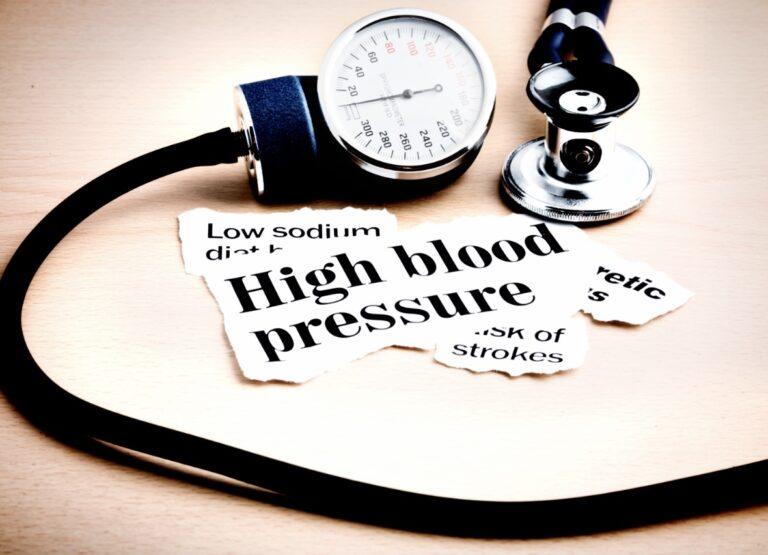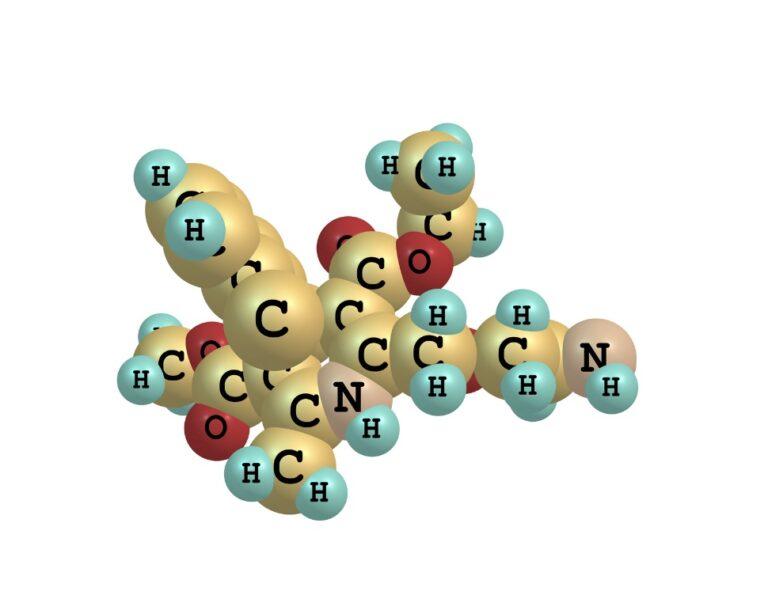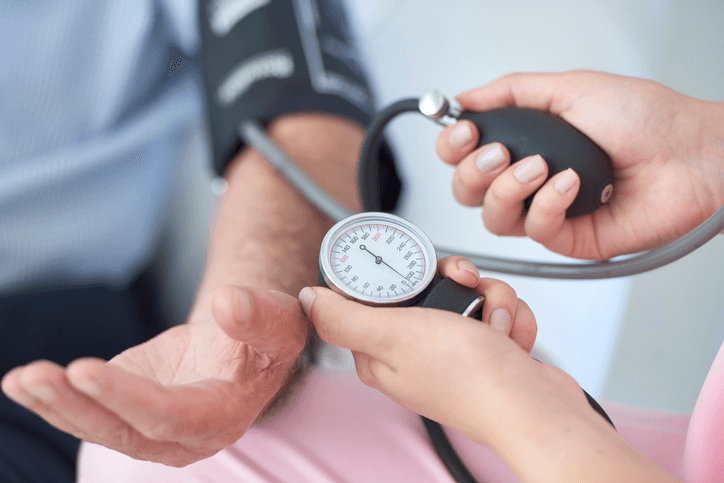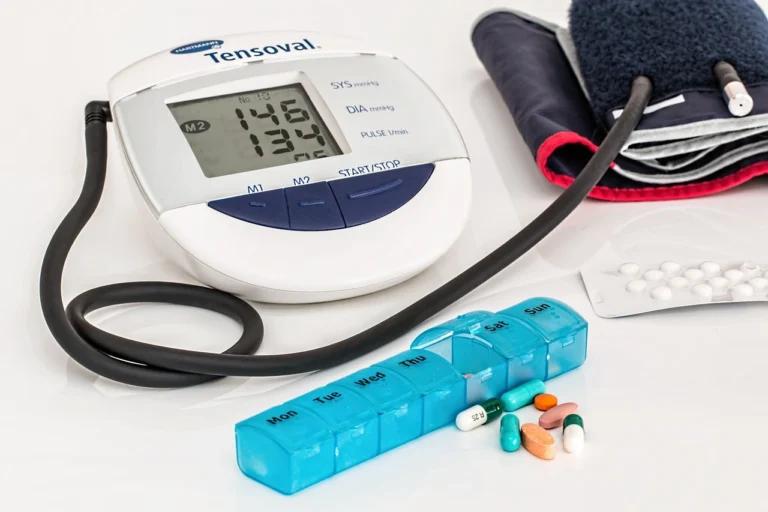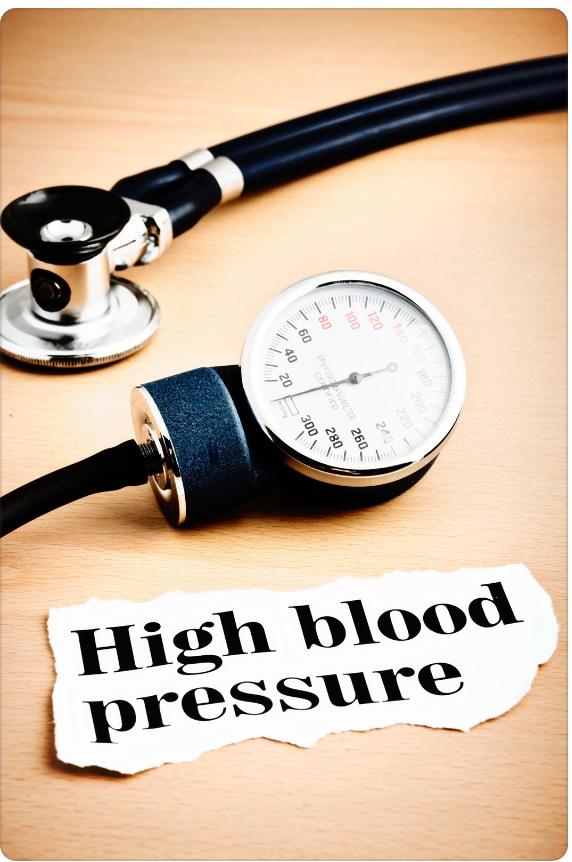Hypertension
Get valuable insights into Hypertension, including its causes, symptoms, prevention strategies, and treatment options, while also learning about how you can lower the cost of the medications used to treat Hypertension.

MEDICAL INFORMATION
Hypertension Key Facts
Related Medications
Hypertension, commonly known as high blood pressure, is a chronic medical condition that affects a significant portion of the global population. Here, we aim to provide you with an in-depth overview of hypertension, including its definition, causes, risk factors, symptoms, complications to your health, diagnosis, treatment, and prevention strategies.
What is the definition of hypertension?
Hypertension refers to a condition in which the force of blood against the artery walls is consistently too high. It is typically categorized into two types: primary (essential) hypertension, which has no identifiable cause, and secondary hypertension, which results from an underlying health condition.
What are the causes and risk factors of hypertension?
Hypertension can develop due to a variety of factors, including both genetic and lifestyle-related causes. Understanding the causes and risk factors of hypertension can help individuals take preventive measures and make necessary lifestyle changes. Here are the primary causes and risk factors associated with hypertension:
Primary/ Essential Hypertension
The exact cause of primary hypertension is often unknown, but it is believed to be a combination of genetic and environmental factors. This form of hypertension develops gradually over time and is influenced by various lifestyle choices and habits. Contributing factors include:
- Age: The risk of developing hypertension increases with age. This is attributed to changes in blood vessels and hormonal systems over time
- Family History: Having a family history of hypertension increases the likelihood of developing the condition
- Race/Ethnicity: Certain ethnic groups, such as African Americans, have a higher risk of developing hypertension
- Gender: Men are generally at higher risk for hypertension until age 64, while after menopause, women are at increased risk
- Obesity: Excess body weight, particularly in the abdominal area, increases the risk of hypertension. Obesity is often associated with other risk factors such as a sedentary lifestyle and poor diet
- Sedentary Lifestyle: Lack of physical activity and a sedentary lifestyle contribute to the development of hypertension
- Poor Diet: A diet high in sodium (salt), saturated and trans fats, cholesterol, and processed foods increases the risk of hypertension. Additionally, inadequate intake of fruits, vegetables, and whole grains can also contribute
- Alcohol Consumption: Excessive alcohol consumption can raise blood pressure and increase the risk of hypertension
- Tobacco Use: Smoking and exposure to secondhand smoke can damage blood vessels and increase the risk of hypertension
- Stress: Chronic stress and unhealthy coping mechanisms can contribute to hypertension
- Sleep Apnea: Sleep-disordered breathing, such as obstructive sleep apnea, is associated with an increased risk of hypertension
Secondary Hypertension
Secondary hypertension is caused by an underlying health condition or medication use. While less common than primary hypertension, it is important to identify and manage these underlying causes. Some of the conditions and factors associated with secondary hypertension include:
- Kidney Disease: Conditions such as chronic kidney disease and renal artery stenosis can lead to hypertension
- Hormonal Disorders: Disorders such as adrenal gland tumors, thyroid problems, and Cushing’s syndrome can contribute to hypertension
- Medications: Certain medications, including nonsteroidal anti-inflammatory drugs (NSAIDs), corticosteroids, decongestants, and some antidepressants, can elevate blood pressure
- Certain Chronic Conditions: Conditions like diabetes, obesity, sleep apnea, and metabolic syndrome can increase the risk of hypertension
- Pregnancy: Pregnancy-induced hypertension, such as preeclampsia, can occur during pregnancy and pose risks to both the mother and the baby
It’s important to note that hypertension can develop in the absence of any specific risk factors. Regular blood pressure monitoring, a healthy lifestyle, and routine medical check-ups are crucial for early detection and management of hypertension. If you have concerns about hypertension or your risk factors, it is advisable to consult with a healthcare professional for guidance and appropriate interventions.
What are the symptoms of hypertension?
Hypertension, or high blood pressure, is often referred to as the “silent killer” because it typically does not cause noticeable symptoms in its early stages. Many people with hypertension may be unaware of their condition until it is detected during a routine medical check-up. However, as hypertension progresses and blood pressure levels remain elevated, it can lead to various signs and symptoms. Here are some common symptoms and complications associated with hypertension:
Headaches
Some individuals with hypertension may experience persistent or recurring headaches, particularly in the back of the head. However, headaches alone are not specific to hypertension and can occur due to various other factors.
Dizziness or lightheadedness
Feeling dizzy or lightheaded, especially when standing up suddenly, can be a symptom of hypertension. It may indicate that blood pressure is not properly regulated.
Shortness of breath
Difficulty breathing or shortness of breath can occur in individuals with severely high blood pressure or those with underlying heart or lung conditions exacerbated by hypertension.
Chest pain
Chest pain, also known as angina, may be experienced in individuals with hypertension. It can indicate reduced blood flow to the heart due to narrowed arteries.
Fatigue
Excessive tiredness, weakness, or a general feeling of fatigue can be associated with hypertension. This may be due to the heart having to work harder to pump blood against high pressure.
Vision problems
Blurred vision, changes in vision, or experiencing visual disturbances can be signs of hypertension-related complications, such as hypertensive retinopathy or damage to the blood vessels in the eyes.
Nosebleeds
Although rare, frequent or severe nosebleeds can occasionally be associated with hypertension. However, nosebleeds are more commonly caused by other factors. It’s important to note that these symptoms are not exclusive to hypertension and can occur due to other health conditions as well. Additionally, many individuals with hypertension may not experience any symptoms until the condition progresses to an advanced stage or complications develop. The most reliable way to diagnose hypertension is through regular blood pressure measurements.
It is crucial to monitor blood pressure regularly, particularly if you have risk factors for hypertension, such as a family history of high blood pressure, obesity, or a sedentary lifestyle. If you experience any of the symptoms mentioned above or have concerns about your blood pressure, it is recommended to consult with a healthcare professional who can assess your condition, conduct further evaluations, and provide appropriate guidance and treatment if necessary.
What are the complications of hypertension?
Hypertension, or high blood pressure, if left uncontrolled or poorly managed, can lead to various complications and health problems that can affect different organs and systems in the body. Over time, the persistent elevation of blood pressure can cause damage to blood vessels, leading to the following complications:
Cardiovascular Disease
Hypertension is a significant risk factor for cardiovascular diseases, including coronary artery disease, heart attack, heart failure, and stroke. The continuous high pressure in the arteries strains the heart, causing it to work harder and potentially leading to heart muscle thickening, weakened heart muscle, or impaired blood flow to the heart.
Stroke
Hypertension is a leading cause of strokes. Prolonged high blood pressure can damage and weaken the blood vessels in the brain, making them more prone to rupture or clot formation. This can result in a stroke, which occurs when the blood supply to the brain is interrupted, leading to brain cell damage or death.
Kidney Disease
The kidneys play a crucial role in regulating blood pressure. Hypertension can damage the blood vessels in the kidneys, impairing their ability to filter waste and excess fluid from the body. This can lead to chronic kidney disease or kidney failure.
Eye Complications
Uncontrolled hypertension can cause damage to the blood vessels in the eyes, leading to various eye problems. These include hypertensive retinopathy, a condition characterized by damage to the retina, and can result in vision problems or even blindness.
Aneurysm
Hypertension can weaken the walls of blood vessels, increasing the risk of aneurysm formation. An aneurysm is a bulge or ballooning in a weakened artery, which can potentially rupture and cause life-threatening internal bleeding.
Peripheral Artery Disease
Hypertension can contribute to the narrowing and hardening of the arteries (atherosclerosis) in the limbs, leading to reduced blood flow and causing symptoms such as leg pain or cramping during physical activity.
Cognitive Decline
Chronic hypertension can affect the blood vessels in the brain, increasing the risk of cognitive decline, vascular dementia, and other forms of cognitive impairment.
Metabolic Syndrome
Hypertension is often associated with other metabolic abnormalities, including obesity, high cholesterol levels, and insulin resistance. These factors collectively contribute to an increased risk of developing metabolic syndrome, a cluster of conditions that raise the risk of cardiovascular disease and type 2 diabetes.
It’s important to note that with early detection, appropriate treatment, and lifestyle modifications, the risk of complications can be significantly reduced. Regular blood pressure monitoring, adherence to prescribed medications, a healthy diet, regular physical activity, stress management, and avoiding tobacco and excessive alcohol consumption are essential in managing hypertension and preventing associated complications.
If you have hypertension or are at risk, it is crucial to work closely with your healthcare provider to monitor and manage your blood pressure effectively. They can provide personalized advice, treatment options, and guidance to help minimize the risk of complications and promote overall cardiovascular health.
How is hypertension diagnosed?
Hypertension, or high blood pressure, is diagnosed through a series of measurements and assessments to determine the blood pressure levels. The process of diagnosing hypertension typically involves the following steps:
Blood Pressure Measurement
The initial step in diagnosing hypertension is to measure blood pressure. This is done using a blood pressure cuff and a sphygmomanometer or an automatic blood pressure monitor. Blood pressure readings are recorded as two numbers: systolic pressure (the top number) and diastolic pressure (the bottom number). The measurement is expressed in millimeters of mercury (mmHg).
Multiple Measurements
To establish an accurate diagnosis, blood pressure should be measured on multiple occasions. This is because blood pressure can fluctuate throughout the day due to various factors, such as physical activity, stress, and time of day. In most cases, blood pressure is measured on two or more separate visits to confirm the diagnosis of hypertension.
Classification of Blood Pressure Levels (US)
The blood pressure measurements are classified into different categories to determine the level of hypertension. The current classification system from the American Heart Association (AHA) and the American College of Cardiology (ACC) is as follows:
- Normal blood pressure: Systolic pressure less than 120 mmHg and diastolic blood pressure less than 80 mmHg
- Elevated: Systolic pressure between 120-129 mmHg and diastolic pressure less than 80 mmHg
- Hypertension Stage 1: Systolic pressure between 130-139 mmHg or diastolic pressure between 80-89 mmHg
- Hypertension Stage 2: Systolic pressure 140 mmHg or higher, or diastolic pressure 90 mmHg or higher
- Hypertensive Crisis: Systolic pressure higher than 180 mmHg and/or diastolic pressure higher than 120 mmHg. Immediate medical attention is required
Classification of Blood Pressure Levels (UK)
The British Heart Foundation provides the following blood pressure categories based on the readings:
- Normal: Blood pressure is considered normal when it is consistently below 120/80 mmHg
- Elevated: An elevated blood pressure reading is when the systolic pressure is between 120-129 mmHg and the diastolic pressure is less than 80 mmHg. This category is a recent addition and helps identify individuals at risk of developing hypertension
- Hypertension Stage 1: This stage indicates mild hypertension. The systolic pressure ranges from 130-139 mmHg, or the diastolic pressure ranges from 80-89 mmHg
- Hypertension Stage 2: This stage indicates moderate to severe hypertension. The systolic pressure is 140 mmHg or higher, or the diastolic pressure is 90 mmHg or higher
- Hypertensive Crisis: A hypertensive crisis occurs when the blood pressure is severely elevated, with a systolic pressure higher than 180 mmHg and/or a diastolic pressure higher than 120 mmHg. Immediate medical attention is required in this situation
Additional Assessments
In addition to blood pressure measurements, healthcare providers may conduct further assessments to evaluate the overall cardiovascular health and identify any underlying causes or risk factors. These assessments may include:
- Medical History: The healthcare provider will inquire about your medical history, including any previous diagnosis of hypertension, family history of high blood pressure, and any other relevant medical conditions or medications
- Physical Examination: A thorough physical examination may be performed to check for signs of hypertension-related complications and to evaluate other cardiovascular risk factors
- Laboratory Tests: Blood tests may be ordered to assess cholesterol levels, blood sugar levels, kidney function, and other parameters that can provide insights into the overall health and potential underlying causes of hypertension
- ECG (Electrocardiogram): An ECG may be conducted to assess heart rhythm and identify any signs of heart damage or abnormalities
It is important to note that blood pressure measurements can be affected by various factors, including anxiety or stress related to the medical environment (known as “white coat hypertension”). To get an accurate diagnosis, blood pressure measurements should be taken in a calm and relaxed setting.
If hypertension is diagnosed, the healthcare provider will determine the appropriate treatment plan, which may include lifestyle modifications, medication, and regular monitoring. It is essential to follow up with regular check-ups and blood pressure monitoring to manage hypertension effectively and reduce the risk of associated complications.
What are the treatment and management options for hypertension?
The treatment and management of hypertension (high blood pressure) may involve a combination of lifestyle modifications and medications. The specific approach depends on the severity of hypertension and the presence of any underlying health conditions. Here are some common treatment and management options for hypertension:
Lifestyle Modifications:
- Dietary Changes: Following a heart-healthy diet, such as the Dietary Approaches to Stop Hypertension (DASH) diet, which emphasizes fruits, vegetables, whole grains, lean proteins, and low-fat dairy products. Limiting sodium (salt) intake is also important
- Weight Management: Maintaining a healthy weight or losing weight if overweight can help lower blood pressure
- Regular Exercise: Engaging in regular physical activity, such as aerobic exercises, can help lower blood pressure and improve overall cardiovascular health
- Limiting Alcohol Consumption: Limiting alcohol intake to moderate levels (up to one drink per day for women and up to two drinks per day for men) is recommended
- Smoking Cessation: Quitting smoking is crucial as smoking can raise blood pressure and increase the risk of heart disease
Medications:
- Antihypertensive Medications: In some cases, lifestyle modifications may not be sufficient, and medications may be prescribed to lower blood pressure. Commonly prescribed medications include diuretics, ACE inhibitors, angiotensin II receptor blockers (ARBs), beta-blockers, calcium channel blockers, and others. The choice of medication depends on individual factors, including age, overall health, and presence of other medical conditions
- Combination Therapy: Sometimes, multiple medications may be required to achieve blood pressure control. Combination therapy involves the use of two or more antihypertensive medications with different mechanisms of action
- Regular Monitoring: Blood pressure should be regularly monitored to assess the effectiveness of medication and make any necessary adjustments
Managing Underlying Health Conditions
If hypertension is secondary to an underlying medical condition, such as kidney disease or hormonal disorders, treating the underlying condition is essential for blood pressure management.
Regular Follow-up and Monitoring
It is important to have regular check-ups with a healthcare professional to monitor blood pressure, evaluate the effectiveness of treatment, and make any necessary adjustments to the treatment plan.
Stress Management
Stress reduction techniques, such as relaxation exercises, meditation, and engaging in activities that promote relaxation, can help manage blood pressure.
What blood pressure medicines are used in hypertension?
Angiotensin-Converting Enzyme (ACE) Inhibitors
- Lisinopril
- Enalapril
- Ramipril
- Quinapril
Angiotensin II Receptor Blockers (ARBs)
- Losartan
- Valsartan
- Irbesartan
- Olmesartan
Calcium Channel Blockers (CCBs)
- Amlodipine
- Nifedipine
- Diltiazem
- Verapamil
Diuretics
- Hydrochlorothiazide (HCTZ)
- Chlorthalidone
- Furosemide
Beta-Blockers
- Atenolol
- Metoprolol
- Propranolol
- Carvedilol
Alpha-Blockers
- Doxazosin
- Prazosin
- Terazosin
Alpha-Beta Blockers
- Labetalol
- Carvedilol
Renin Inhibitors
- Aliskiren
Direct Vasodilators
- Hydralazine
- Minoxidil
Supplements
- Omega-3 fatty acids
- Potassium
How can hypertension be prevented?
Here are some key strategies for preventing hypertension:
- Maintain a Healthy Weight: Aim to achieve and maintain a healthy weight according to your body mass index (BMI). Losing weight if you are overweight or obese can significantly reduce your risk of developing hypertension
- Follow a Healthy Diet: Adopt a balanced and nutritious diet that emphasizes fruits, vegetables, whole grains, lean proteins, and low-fat dairy products. The Dietary Approaches to Stop Hypertension (DASH) diet, which is rich in fruits, vegetables, and low-fat dairy products while limiting sodium (salt) intake, has been shown to be effective in lowering blood pressure
- Reduce Sodium Intake: Limit your consumption of high-sodium foods, such as processed and packaged foods, fast food, and salty snacks. Aim to keep your sodium intake below 2,300 milligrams (mg) per day, or even lower if advised by your healthcare provider
- Exercise Regularly: Engage in regular physical activity most days of the week. Aim for at least 150 minutes of moderate-intensity aerobic exercise, such as brisk walking, swimming, or cycling, or 75 minutes of vigorous-intensity aerobic exercise, such as running or high-intensity interval training (HIIT), per week
- Limit Alcohol Consumption: If you drink alcohol, do so in moderation. Limit your intake to moderate levels, which means up to one drink per day for women and up to two drinks per day for men
- Quit Smoking: Smoking can raise blood pressure and damage blood vessels, increasing the risk of hypertension and other cardiovascular diseases. Quitting smoking is crucial for preventing hypertension and improving overall health
- Manage Stress: Chronic stress can contribute to the development of hypertension. Incorporate stress management techniques into your daily routine, such as meditation, deep breathing exercises, yoga, or engaging in activities that help you relax and unwind
- Limit Caffeine Intake: While the relationship between caffeine and blood pressure is complex and varies among individuals, it may be beneficial to limit excessive caffeine intake, especially if you are sensitive to its effects
- Monitor Blood Pressure Regularly: Regularly check your blood pressure to stay aware of your readings. Home blood pressure monitoring can help you keep track of your blood pressure between doctor visits and enable early detection of any changes
- Seek Regular Medical Care: Attend regular check-ups with your healthcare provider to assess your overall health and monitor your blood pressure. They can provide guidance on lifestyle modifications, screen for other risk factors, and recommend appropriate interventions if necessary
What hypertension support organisations are there available to support me in the UK?
- Blood Pressure UK. Blood Pressure UK is a charity organization dedicated to providing information and support for individuals with high blood pressure. They offer resources, advice, lifestyle tips, and information on managing hypertension effectively
- British & Irish Hypertension Society (BIHS): The BIHS is a professional organization that aims to promote research, education, and awareness in the field of hypertension. While primarily focused on healthcare professionals, they provide resources and information that can be helpful for individuals with high blood pressure
- Heart UK. Although primarily focused on cholesterol and heart-related conditions, Heart UK provides information, resources, and support for individuals with hypertension. They offer educational materials, lifestyle advice, and support for maintaining a healthy heart
What hypertension support organisations are there available to support me in the US?
- American Heart Association (AHA). The AHA is a national organization dedicated to promoting heart health and cardiovascular disease prevention. They provide information, resources, lifestyle tips, and support for individuals with hypertension
- American Society of Hypertension (ASH). The ASH is a professional organization that focuses on hypertension research, education, and advocacy. While primarily directed toward healthcare professionals, they offer resources and information that can be useful for individuals with high blood pressure
- The Hypertension Institute. The Hypertension Institute is a non-profit organization dedicated to hypertension education, awareness, and support. They provide educational materials, lifestyle tips, and resources to help individuals understand and manage their high blood pressure
- Centers for disease control and prevention
- National heart, lung, and blood institute
Summary
Hypertension is a prevalent condition that can significantly impact overall health and increase the risk of serious complications. Understanding its causes, risk factors, symptoms, and available treatment options is essential for effective management. By adopting a healthy lifestyle, following medical advice, and monitoring blood pressure regularly, individuals can take proactive steps to prevent and control hypertension, promoting better cardiovascular health and overall well-being.
Medical Disclaimer
NowPatient has taken all reasonable steps to ensure that all material is factually accurate, complete, and current. However, the knowledge and experience of a qualified healthcare professional should always be sought after instead of using the information on this page. Before taking any drug, you should always speak to your doctor or another qualified healthcare provider.
The information provided here about medications is subject to change and is not meant to include all uses, precautions, warnings, directions, drug interactions, allergic reactions, or negative effects. The absence of warnings or other information for a particular medication does not imply that the medication or medication combination is appropriate for all patients or for all possible purposes.





